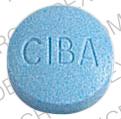Apresoline Disease Interactions
There are 6 disease interactions with Apresoline (hydralazine).
- Bone marrow suppression
- Coronary artery disease
- Lupus erythematosus
- Valvular heart disease
- Cerebral vasculopathy
- Renal dysfunction
Hydralazine (applies to Apresoline) bone marrow suppression
Major Potential Hazard, Low plausibility. Applicable conditions: Bone Marrow Depression/Low Blood Counts
Hydralazine may rarely cause blood dyscrasias at recommended dosages. Reduction in hemoglobin, red cell count, agranulocytosis, leukopenia, and purpura have been reported. Therapy with hydralazine should be administered cautiously in patients with these preexisting conditions and if such abnormalities develop during the course of therapy, treatment should be discontinued. Monitoring blood counts should be considered for those patients at higher risk.
Hydralazine (applies to Apresoline) coronary artery disease
Major Potential Hazard, High plausibility. Applicable conditions: Ischemic Heart Disease
The use of hydralazine is contraindicated in patients with coronary artery disease. Reflex tachycardia may commonly occur. Palpitations and chest pain have also been reported. Myocardial infarction has been associated with the use of hydralazine.
Hydralazine (applies to Apresoline) lupus erythematosus
Major Potential Hazard, High plausibility.
The use of hydralazine has been associated with the development of lupus erythematosus and lupus-like syndromes, as well as exacerbation of the disease. Hydralazine therapy should be withdrawn in patients experiencing worsening of preexisting lupus. Monitoring complete blood counts, and antinuclear antibody titers before and during prolonged therapy is recommended.
Hydralazine (applies to Apresoline) valvular heart disease
Major Potential Hazard, High plausibility.
The use of hydralazine is contraindicated in patients with mitral valvular rheumatic heart disease.
Hydralazine (applies to Apresoline) cerebral vasculopathy
Moderate Potential Hazard, Moderate plausibility. Applicable conditions: Cerebral Vascular Disorder
The vasodilatory effects of hydralazine may aggravate cerebral vasculopathy. Therapy with hydralazine should be administered cautiously in patients with cerebral vasculopathy.
Hydralazine (applies to Apresoline) renal dysfunction
Moderate Potential Hazard, Moderate plausibility. Applicable conditions: Glomerulonephritis
The use of hydralazine has been associated with the development of glomerulonephritis. Hydralazine should be used with caution in patients with advanced renal damage and these patients may require a lower dose. Renal function should be monitored and supported as required.
Switch to professional interaction data
Apresoline drug interactions
There are 412 drug interactions with Apresoline (hydralazine).
Apresoline alcohol/food interactions
There is 1 alcohol/food interaction with Apresoline (hydralazine).
More about Apresoline (hydralazine)
- Apresoline consumer information
- Check interactions
- Compare alternatives
- Reviews (3)
- Drug images
- Side effects
- Dosage information
- During pregnancy
- Drug class: vasodilators
- Breastfeeding
Related treatment guides
Drug Interaction Classification
| Highly clinically significant. Avoid combinations; the risk of the interaction outweighs the benefit. | |
| Moderately clinically significant. Usually avoid combinations; use it only under special circumstances. | |
| Minimally clinically significant. Minimize risk; assess risk and consider an alternative drug, take steps to circumvent the interaction risk and/or institute a monitoring plan. | |
| No interaction information available. |
See also:
Lasix
Lasix is a loop diuretic used to treat fluid retention from heart, liver, or kidney conditions, and ...
Enalapril
Enalapril is used to treat high blood pressure, congestive heart failure and to improve survival ...
Botox
Botox is used cosmetically to reduce facial lines and wrinkles and for medical purposes for ...
Valsartan
Valsartan is an angiotensin II receptor blocker (ARB) that may be used to treat high blood pressure ...
Hydrochlorothiazide
HCTZ (hydrochlorothiazide) used to treat high blood pressure (hypertension) and edema. Includes ...
Atenolol
Atenolol is used to treat angina (chest pain) and hypertension (high blood pressure). Learn about ...
Furosemide
Furosemide is a loop diuretic used to treat fluid retention and high blood pressure by increasing ...
Metoprolol
Metoprolol is used to treat angina (chest pain) and hypertension (high blood pressure). Learn about ...
Losartan
Losartan is used to treat high blood pressure (hypertension). It is also used to lower the risk of ...
Lisinopril
Lisinopril is an ACE inhibitor. It is used to treat high blood pressure, congestive heart failure ...
Further information
Always consult your healthcare provider to ensure the information displayed on this page applies to your personal circumstances.


